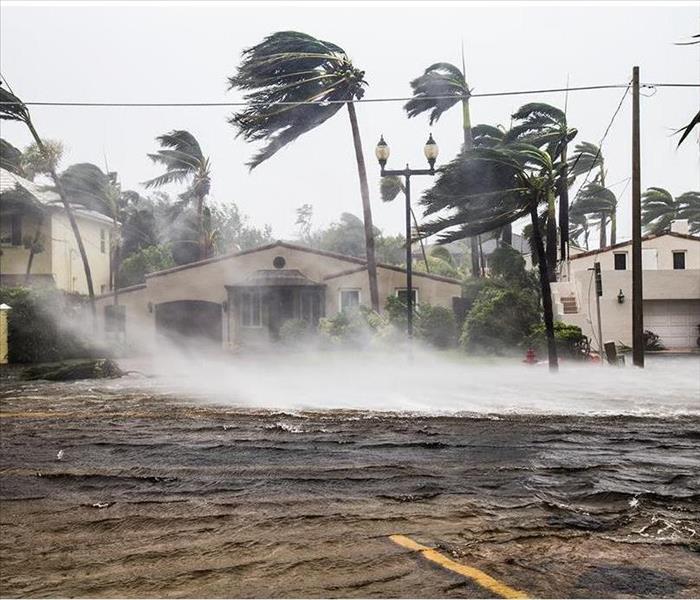Preparing your home for a major storm
9/1/2020 (Permalink)
Being a homeowner, you do not know what mother nature is going to throw at you. Therefore, you always need to be ready. You can take preventative measures to help reduce damage if and when a severe storm hits.
1. Clear limbs and trim trees
- During a storm, dead tree limbs can get loose and cause damage to a home's exterior or even puncture a window. Heavy rain can also cause trees with shallow root systems to pull out of the ground.
2. Secure fences
- Ensure that your fences are properly secured to help prevent them from being lifted up and thrown against the house by heavy winds.
3. Secure furniture
- Heavy winds can cause items like patio furniture and large toys to damage the exterior of your home. It's a good idea to anchor outdoor furniture or bring it indoors before a storm hits. You should also move anything in your yard that can become flying debris inside your house or garage.
4. Check gutters
- Help prevent damage inside your house by having downspouts drain away from your home and clear your gutters of any debris.
5. Protect the critical areas
- Wind is a major threat to your roof, windows, doors and garage doors. Either you or a building contractor can build and install temporary protection, such as approved wind shutters or plywood on windows and coverings for patio and entry doors, strengthen and stiffen garage doors, and install heavy duty door hardware.
6. Protect your valuables
- Protect mementos in waterproof containers and/or take the items with you if you evacuate. Inventory valuables and contents in the home with pictures or video. Note the approximate value of each item and the date of purchase. You can also send an inventory to a family member outside your region for safekeeping. Also, make sure important documents, such as an insurance policy or mortgage papers, are stored in a safe deposit or fire safe box.
7. Stock a basic emergency kit
- A true emergency can leave you without basic services, including electricity, water, gas or sewage, for a few hours or a few days. Stock your family's emergency kit with enough food, water and supplies to carry all of you through at least three days. Also make sure to restock your kit once the emergency has passed.
8. Create a family emergency plan
- Staying connected is of the utmost importance during an emergency. Designate an out-of-town family member or friend to be your check-in person in case local phone lines are down. Make sure every member of your family knows that contact's number and has a way to reach him or her. Ideally a cell phone and charger or a prepaid calling card. Also, choose a local place where your family members should meet if they are separated when an emergency strikes and your home is unsafe. This might be a landmark or even a parent's workplace.





 24/7 Emergency Service
24/7 Emergency Service
